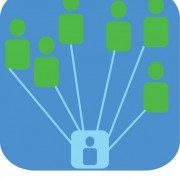What are the characteristics of a good employee?
Knowing the characteristics of a good employee positions an employer to hire best fit job candidates and build a culture that supports positive employee engagement. Many employers will define what makes a good employee as a combination of soft and hard skills. But skills can only go so far in making someone a great employee. Personal characteristics such as hard work, determination, and critical thinking are crucial in identifying great employees too.
In this post, we explore seven characteristics or traits that make good employees.
7 Characteristics of Good Employees
Improve productivity, build a stronger work culture, and increase employee engagement by hiring good employees with the following characteristics.
1. Dedication
Dedication is the trait of having a strong sense of commitment and loyalty to your career role or business. Moreover, dedicated employees are purpose-driven in their careers. Dedication is exemplified by the following traits:
- A strong passion for work or profession
- A positive attitude towards profession or job
- Punctuality for work-related events, meetings, or projects
- Flexibility when assigned roles, duties, or tasks
Dedicated employees don’t need extensive experience to succeed. Rather, they’re willing to learn, train, or sacrifice the hours required to excel in their work. These employees are purpose-driven and goal-oriented. They’re ready to strengthen any areas that may need reinforcement to excel in their careers.
2. Confidence
Confidence, performance, and productivity go hand-in-hand. Confident employees are not only sure of their abilities, talents, and skills; they’re also willing to convince other employees of their ability to get the job done.
Confident employees are not scared by complex tasks or undertakings. They know they can research, consult, and collaborate to get results. This translates into confident employees being able to complete more complicated, harder, or sophisticated tasks with the same level of effectiveness.
As employee confidence grows, employees exhibit the following traits:
- Seeking ways to improve personal and professional skills.
- Adapting fast to new roles and new tasks
- Knowing when to seek help
Employees exhibiting high confidence levels find new ways to adapt to challenging tasks. They’re ready and willing to embrace workplace challenges. Confidence includes the ability to look at new ways to overcome challenges, including optimizing existing resources (personal, equipment, or knowledge).
3. Communicative
Excellent communication skills are a must-have to succeed. That’s because most workplaces only excel with effective internal communications. Processes and procedures must be conveyed to relevant people employees, and outcomes must be communicated back.
Managers need excellent communication skills to convey instructions, guidelines, and policies to middle-level and lower-level employees. Similarly, employees need great communication skills to converse with upper management about their responsibilities and whether they understand directions clearly or not.
Relaying information quickly and efficiently is critical, especially in industries where data is crucial to operational success. This makes communication skills a top priority to look for in candidates, as well one that should be foster through processes and work culture.
Excellent communication skills can lead to success and competitive positioning. The ability to communicate denotes the ability to collaborate on shared tasks. That, in turn, leads to greater efficiency and productivity.
4. Reliability
Reliability is perhaps the most sought-after characteristic of an employee in most industries. A reliable employee is trusted and transparent. Reliable employees have strong moral codes and ethical standards.
Reliability is a critical factor in ensuring that the job will get done – and done well! Reliable employees are strategic assets because they can do the job with little or no supervision.
Being a reliable employee includes:
- Consistently meeting deadlines
- Coming to work on time
- Attending work-related seminars and events
- Showing a readiness to take on responsibility
- Giving high-quality work
- Showing initiative when needed
Reliable employees are especially valuable in industries with highly sensitive information, including personal data, credit card numbers, and social security numbers.
5. Teamwork
The importance of teamwork and collaboration cannot be over-emphasized. Teamwork is a requirement in most work settings. Teamwork and collaboration require dedication, tolerance, openess, and patience.
Being a team player means you’re a positive contribution to your team. It’s possible to exhibit a set of other desirable characteristics by being a team player. For instance, most team players are communicative.
Some of the traits and characteristics of good team players include:
- Committed to their success and their team’s
- Strong problem-solvers
- Supportive and respectful
- Responsible and reliable
- Flexible and adaptable
Organizations that rely heavily on teamwork often need greater adaptability. For instance, a team member who can flexibly adapt to being a leader will be an important contributor to the organization.
6. Independence
The ability to work alone is just as important as the ability to collaborate. Even in heavily team-oriented companies, employees will likely find themselves doing some work alone. This is necessary and healthy, as it provides employees time to focus and complete work more efficiently. Independent work requires respect and trust between co-workers and managers that work will be completed independently and efficiently!
Autonomous employees offer the following qualities:
- Strong time-management skills
- Ability to review and critique work or projects
- Strong focus
- High productivity
Remote employees must be trusted to work independently without supervision. And since remote work calls for greater autonomy, independent employees can adapt faster to working remotely.
7. Leadership
There’s a debate on whether leaders are born or made. However, what’s not debated is that great leaders are admired, loved, and are hard to come across. But what makes great leadership?
Well, leadership is the ability to motivate a group of people towards a common and shared goal. This requires vision, strategy, and confidence, and communication. Great leaders must have a vision and leverage their teams’ efforts to achieve a defined goal.
Employees with strong leadership skills can move companies forward. They can guide team members toward developing their skills. Influential leaders have a wide range of skills, including honesty, reliability, and self-confidence.
Leaders exhibit the following traits:
- Give constructive feedback instead of being judgmental
- Show great empathy to fellow team members
- Act as a source of inspiration to fellow team members
- Strong ability to identify a team’s strengths and weaknesses
- Confidence in their ability to lead teams
- Strong organizational skills
Leadership is a critical quality. People with strong leadership skills are usually promoted by an organization into a more strategic role. That’s because internal recruitment or promotion from within helps companies cut recruitment costs.
Likewise, hiring someone who shows strong leadership skills gives others someone to look up to, which increases organization and productivity in the workplace.
ExactHire – Solutions to Hire Good Employees
ExactHire is a provider of custom hiring solutions to employers of all industries and sectors. We provide applicant tracking software, employee onboarding software, and full service hiring (where we do the hard work of delivering you candidates to hire).
Contact ExactHire to refine and enhance your search for good employees.
Photo by krakenimages on Unsplash








